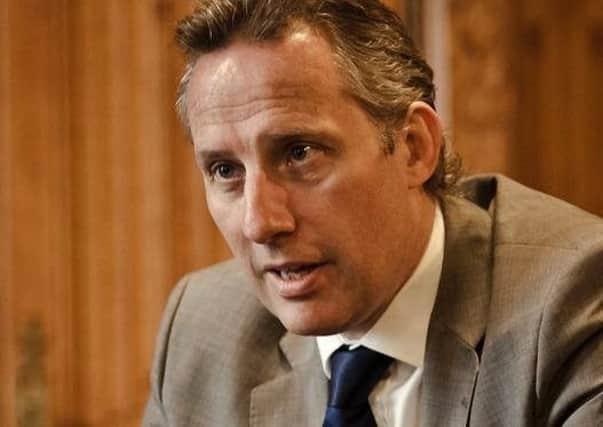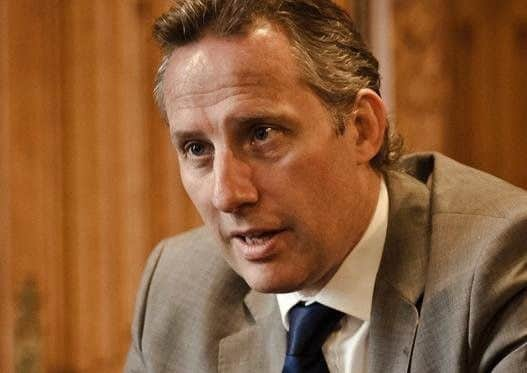Ian Paisley told foreign government official he could arrange oil deals '˜very quickly'


The claim, in leaked emails obtained by The Daily Telegraph and published by Parliament, refers to a dinner conversation at which Mr Paisley said “we discussed a potential oil purchase”.
Mr Paisley said he understood “you require a regular supply and are currently changing your filters on the refinery to take other than Iran oil”.
Advertisement
Hide AdAdvertisement
Hide AdHe offered that “if you can let me know quantity and quality specifications of oil requirements I can certainly make this happen very quickly”, adding that “this is the most lucrative project you could be involved in”.


However, when asked about that Mr Paisley said he had “never brokered any oil deal for any gentleman or anyone else and I never met him or any of his colleagues in Africa”.
He said it was a “total fabrication and nonsense” to suggest that “some sort of illicit trade deal was carried out between myself and [a Sri Lankan official]”.
The standards commissioner asked Mr Paisley to provide the names of the oil companies with which he was involved but he declined to do so, saying it was “a conversation between myself on my private email account and a third party”.
Advertisement
Hide AdAdvertisement
Hide AdThe standards commissioner decided she did not believe she should investigate “this matter further as part of this inquiry”.
Looking at the other allegations, Mr Paisley’s peers on the Commons’ Standards Committee found him guilty of “serious misconduct” and said that his actions “were of a nature to bring the House of Commons into disrepute”, recommending the heaviest punishment of an MP for decades.
The Commons’ standards commissioner, Kathryn Stone – whose report into the matter went to the committee, which endorsed her findings – ruled that the DUP MP had received a “very substantial personal benefit” from the government of Sri Lanka.
He did not declare the visits – and then went on to lobby the prime minister on behalf of Sri Lankan regime.
Advertisement
Hide AdAdvertisement
Hide AdWhen The Daily Telegraph reported on Mr Paisley’s behaviour last year, he threatened to sue it and claimed its allegations were “devoid of fact or logic”.
But the commissioner said: “I find it surprising that such an experienced MP did not ask himself whether it was proper to accept such benefits from a foreign government. I also find it surprising that he did not realise that, if accepted, these benefits would call into question his impartiality when he next spoke about the affairs of that government.”
Mr Paisley said he was “deeply embarrassed” by the failure to declare the trips but disputed that he undertook paid advocacy for a foreign state.
In a letter to the commissioner during her investigation, Mr Paisley said: “I certainly refute any claims that I made an intentional decision not to register, that it was a secret that I was in Sri Lanka, or, worse, that it impacted any comments or decisions I made then or now as a Parliamentarian.”
Advertisement
Hide AdAdvertisement
Hide AdHowever, both the commissioner and MPs dismissed his argument. The commissioner found that Mr Paisley had “breached the House’s rule on paid advocacy” by writing to the prime minister after receiving a gift from Sri Lanka, that he had broken Commons rules by failing to declare the Sri Lankan gifts in his letter to the prime minister, and, in a third finding she found that he broke Commons rules by failing to declare the Sri Lankan gifts within 28 days.